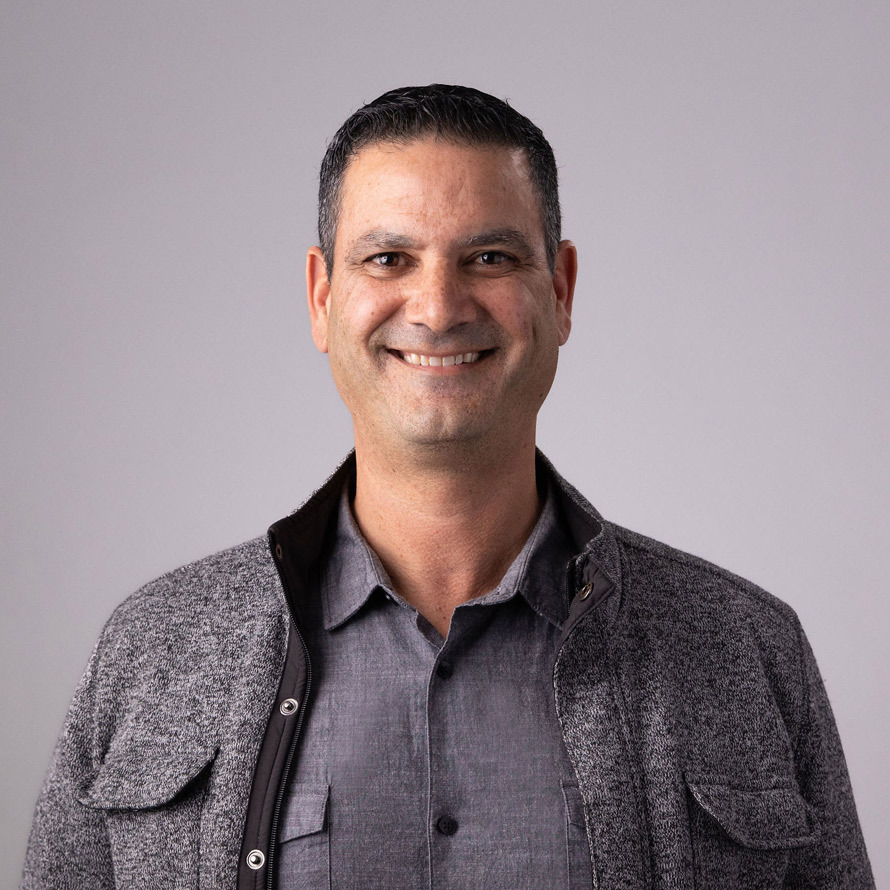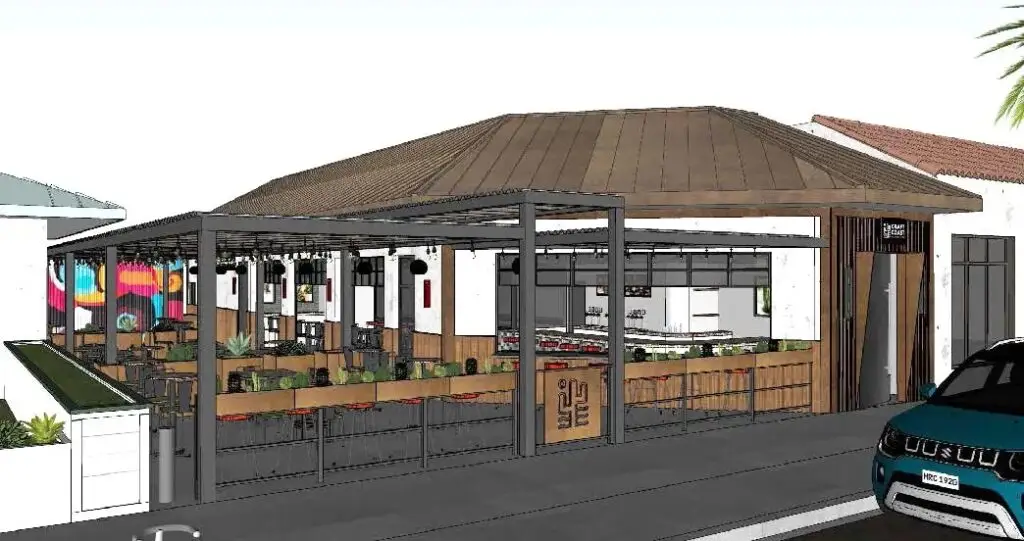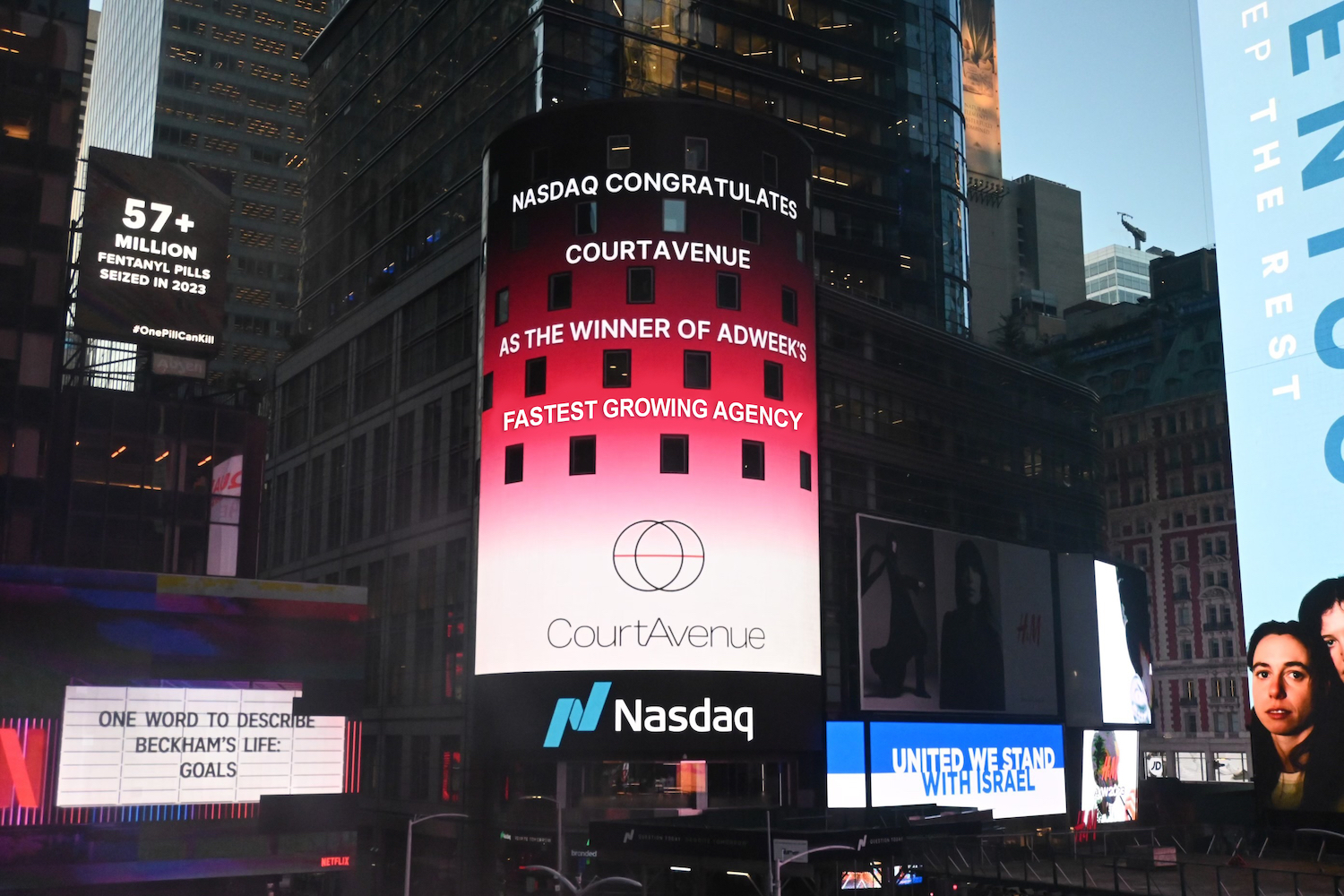Spend five minutes with Dan Khabie and he’ll ask you 10 different questions. “I’m fascinated by human behavior. I’m totally obsessed with it,” he says. “I’m that annoying guy asking you, ‘What matters to you most? What’s important to you? Why you do the things you do?’”
Before I begin our interview, he’s already asked me which neighborhood I grew up in, how I got started as a writer, and whether I’ve been to Bleu Boheme in Kensington. “My wife and I love that restaurant,” he gushes.
But we’re here to talk about him––more specifically, about CourtAvenue, the digital agency he co-founded with Kenny Tomlin in 2020, AKA the worst possible time to start a business. “We thought we were going to conquer the world and we went goose eggs,” Khabie laughs. That year was the first time he had tasted failure. So how did they become the No. 1 fastest-growing digital agency (according to AdWeek) just three years later? Before I can get to that, I need to figure out what a digital agency actually does.

Khabie says there are three sides to their company. First off, they build websites. He likens this to building a house. “You got to set the foundation. You got to lay the piping.” That’s the digital tech consulting part of the business. Then there’s the media side of things, like advertising, which Khabie refers to as “Getting people to the house.” The third part of their business develops interactive software—wristbands, QR codes, digitizing theme parks and retail spaces. In the house analogy, this is like throwing a party in the backyard, Khabie concludes.
If that sounds like three different companies, that’s because it is. CourtAvenue’s success began when the founders started integrating their former companies into this new endeavor. Khabie and Tomlin met working for WPP, the largest marketing advertising company in the world. WPP had bought Khabie’s digital agency, Digitaria, as well as Tomlin’s retail media business, Rockfish. Khabie knew right away he wanted to start a business with Tomlin.
Tomlin, it turned out, already had a name in mind. Court Avenue was the first paved road in the U.S. And what do paved roads do? They decrease the time it takes to get from point A to point B. “We have to be in the business of removing friction and giving people their time back, through strategy, technology, and innovation,” Khabie says. Now there are a handful of companies integrated into CourtAvenue, like Modifly, a media agency; and Gigantic Playground, which does interactive technology––the “parties in the backyard” from Khabie’s house analogy.

At the end of 2021, CourtAvenue secured Kia as its first high-profile client and brought in $1.3 million that year. “We hit them when they were going through a massive electric vehicle movement,” he describes. “And I’m a big electric vehicle guy.” To this day, Kia is one of Khabie’s favorite clients. They were the turning point for the company’s success. “They took a huge chance on us.” Khabie says. “I wouldn’t have taken that chance!”
In, 2022 the company brought in a massive $21.1 million and more than $30 million in 2023, according to the San Diego Business Journal. Now CourtAvenue has offices across the US and Latin America. It’s hard to believe they started in a garage in Carmel Valley, as Khabie reminds me. Their San Diego headquarters are located in a downtown highrise, with views of Broadway below. It’s a few blocks from the harbor, and has a spacious outdoor deck for events—one of the reasons they chose the building.
“It’s good for now,” he says, but he’s already thinking about the future. “Ideally, I want something cooler.” When I ask what that means he replies, “You know, cooler. Someplace you would want to hang out. This feels very corporate.” Khabie explains they upgraded to this building because more employees have been opting to return to work in person.
“Young people want to hang out,” he says. A big curly-haired dog trots through the office and leans against my leg. “Whose dog is this?” Khabie asks. He laughs when he finds out an employee snuck him past the security desk downstairs. “I should bring my dog in,” he muses.
In the corner office, Clay Massey, CourtAvenue’s Director of Innovation Technology, shows me how the company implements artificial intelligence in online shopping. He demonstrates on a version of the Kia website that hasn’t yet been launched to the public. He types in the chat what he’s looking for in a car—gas mileage, off-road potential, family friendly. And the site chats back—suggesting different vehicles based on his criteria.

When he switches into Spanish, the AI follows his lead. Most websites that have chatbots are pretty rudimentary, he explains. They are just going to transfer you to a human representative. This one won’t need to defer to human intervention. “Nothing like this exists yet,” Massey tells me.
Khabie is a firm believer in the role artificial intelligence plays in the future. “I’m the dumbest entrepreneur you’ll ever meet in your life,” Khabie admits. “I’m 51 years old and I missed some of the greatest innovations on this planet.” He turned his nose up at all the heavy hitters—Google, FaceBook, Snapchat, YouTube. But he’s not going to miss out on this one. “AI is going to do something to us that we’ve never seen in our life,” he insists. “It is going to revolutionize the world. It is going to change everything.”
I ask Khabie who would be a dream client for CourtAvenue and he pauses to think. “Nike is going through a moment,” he responds. “They’ve lost some of their core consumer base and they need to rekindle.” He tells me he’d love to get his hands on them, but ultimately he’s more interested in people than he is in any specific brand. “I think people are amazing and their stories are amazing. I just want to be with the brightest minds and hear what makes them tick.”






















